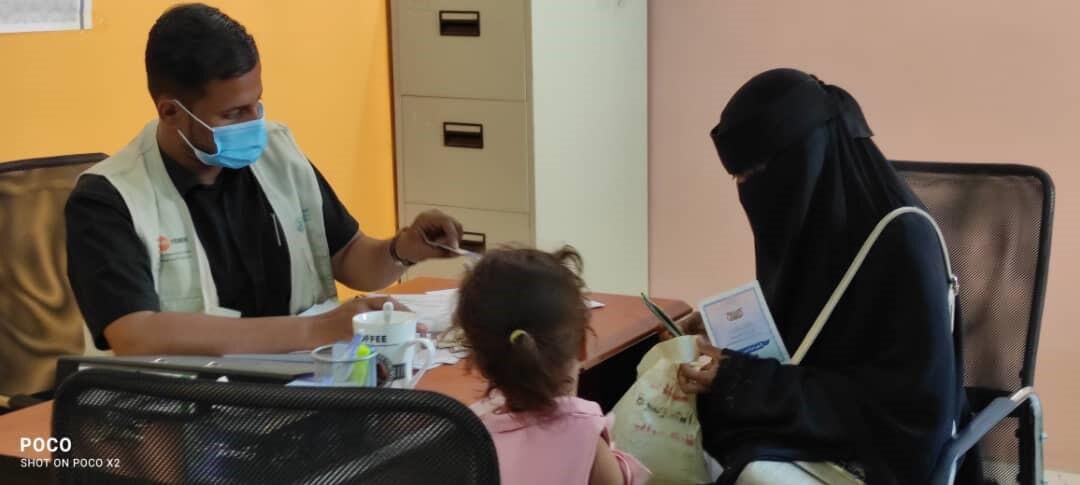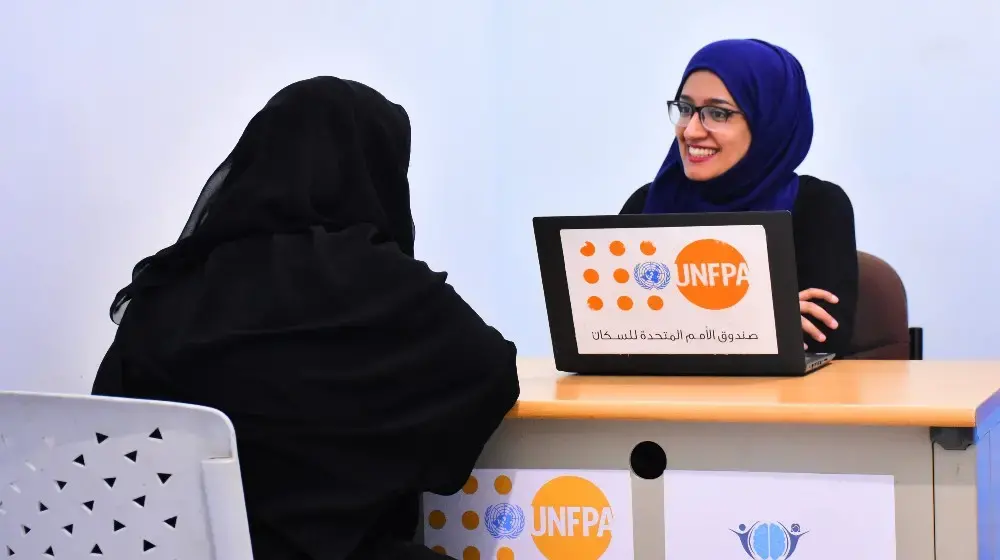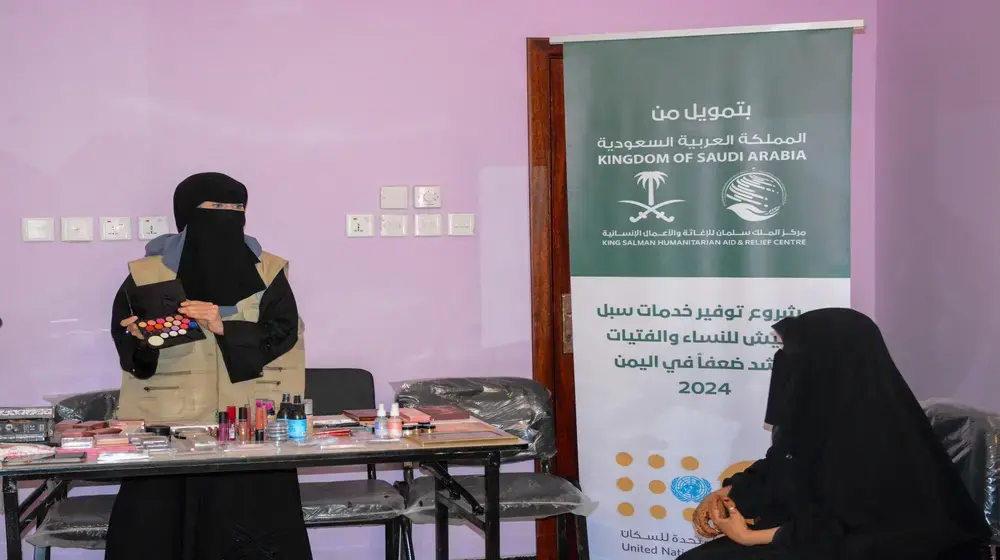Hadramaut, Yemen - Six years of escalating conflict has taken a heavy toll on Yemenis, particularly its women and girls.
An estimated 73 per cent of the over 4 million people displaced in Yemen are women and children. Thirty per cent of displaced households are now headed by females, compared to 9 per cent before the escalation of the conflict in 2015.
Many of these displaced women have little or no belongings. To make matters worse they often lack any form of identification that allows them to travel, access emergency relief, healthcare, education, the job market or other basic services.
Displaced without an identity
Hala Omar, 35 years old and mother of two daughters is one such woman.
“My husband died from the conflict, I was left alone to look after the family. Me and my two daughters were displaced to Hadramaut as fighting intensified near our home. I left carrying only my two daughters and no belongings,” tells Hala.
Among the many things she left behind were her identification documents.
“Here in the displacement camp, I suffered greatly because I did not have any identification papers. I was also interrogated by the police many times because of this,” says Hala.
When Hala went in search of cash assistance and emergency relief items, she could not be registered without any proof of identification.
The public school also refused to admit her daughters for the same reasons.
"I tried, again and again, to obtain the identification papers for me and my daughters, but to no avail. I was fed up," says Hala.
When Hala saw a group of women displaying their identification documents she approached them hoping for a positive response.
Safe spaces offer hope
“I was very hopeful when I saw a group of women displaying their identification documents. I was more shocked when they told me they had obtained them for free.”
Hala’a was directed to a UNFPA-supported safe space, funded by KS Relief, that helps women like Hala to obtain their identification document..
“After a few days, I did not believe that the safe space was able to obtain identification papers for me and my two children. I can now obtain basic services and my daughters can go to school,” tells a cheerful Hala.
Building skills of displaced women
In addition to obtaining her identification documents, the safe space enrolled Hala in a skills-building course to allow her to earn a living.
"With the help of the safe space I have been able to rent a small house. We no longer sleep in the open and go without food like we did before. My children are enrolled in school. I am not exaggerating if I say that I am currently living a better life than before I was displaced.”
With the funding support of KSRelief, UNFPA has been able to reach nearly 40,000 women with protection services since November 2020, including providing 1,500 women with livelihood support.
“I am very lucky to have found this safe space. These safe spaces are changing the lives of women like me, " said Hala.




